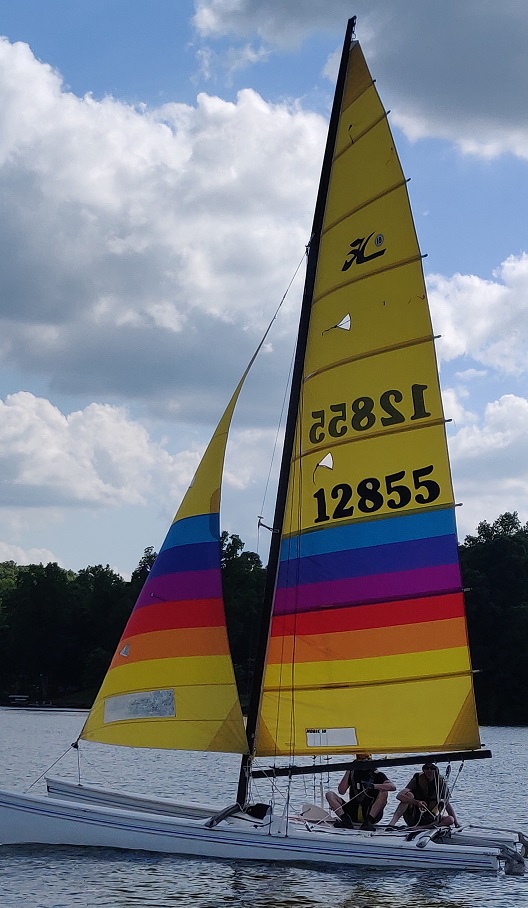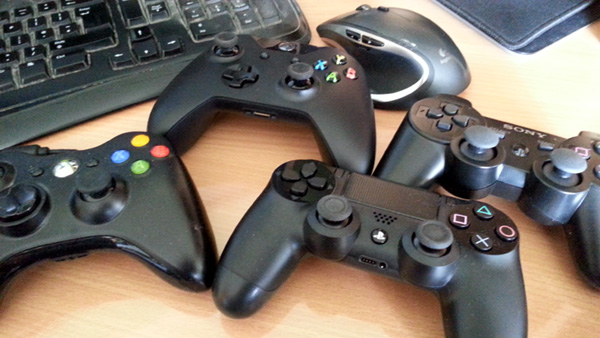About Me: Professional, The Short
Thank you for taking a moment to get to know me. Lets start with a professional summary:
I am an IT specialist with extensive troubleshootig and repair experience. While I have repaired and built many computers before making a profession of it, my actual computer and networking experience begins with 'volunteering' at night at a local ISP (Internet Service Provider) called Somernet. When there were no active issues to resolve, we (there were several of us) would spend our time gaming over the ISPs impressive internet connection. This game time was basically our 'pay' for the 'work' we did. Obviously it wasnt the most profitable job I've had, but it was very educational, and the overall experience was priceless.
I had to leave that 'job' due to moving out of town for college, where I studied electronic engineering at Spencerian College. Sure, electronic engineering isnt exactly computer networking, but since computer networks run on electricty, it is very helpful to know exactly what the underlying concepts are down the component level (resistors, capicitors, transistors, etc...).
After college, I worked for Cingular (indirectly), which is now AT&T. There, I tested TDMA and GSM cell sites (towers that provide cell phone service) to help find potential improvements and resolve problems.
Once that project was complete (successfully), I moved on to Sprint where I performed more or less the same type of tests on CDMA and LTE, as well as testing the higher level network 'behind' the cell service, testing everything from basic connectivity to latency and bandwidth while performing specific actions (mostly downloading/uploading large files and viewing webpages). And again, once the project completed, successfully, I moved on.
This time, I wanted to do something a little more stationary. AER Worldwide was able to provide that, as well as more hands-on experience with servers, switches, and other rack systems. At AER we tested and in some cases repaired network equipment to prepare it for resale. Shortly after I set up a testing area to vastly streamline the testing process, management decided to remove the entire testing department. Once again, I had to look for something new.
Being at AER was great for troublshooting and testing, but I decided to find something with a little more instant gratifaction from my efforts. I decided I wanted to try working in direct contact with customers. This lead me to TeleNetwork, a technical support provider for ISPs. Working directly with customers and getting immediate feedback about the resolution of the problem was quite a change compared to my previous work. Helping people directly to immediatly resolve their issues was very satisfying, if not a little stressful. Unfortunatly, TeleNetwork began having trouble and dropped down to only a few clients, meaning workable hours were drasticly reduced throughout the company. It was time to move on again...
Now, I work as an IT Specialist for the largest textile plant in the U.S.. Here, I work a normal kind of IT job: I maintain network systems and servers, upgrade systems when necessary, onboard new employees that need computer and network access, and resolve all issues as they pop up. My goal here is to eventually take over and manage the entire IT department.
About Me: Professional, The Long
I hope you have some time. If not, you can click
here to skip to the personal section. This version of my professional background is very aptly named. I want to start by going back a bit further than the short version started,
way back, to when I first remember becoming interested in electronics, which lead to my interest in computers and networking. It started when I found my father's remote control car, this wasnt your usual twenty dollar Wal-Mart special. It was a really nice one, meant for an adult to make a hobby of, not a childs toy. After nearly running the battery dead, I decided I wanted to know how it actually worked and began to disassemble it. I tore it down removing every screw and several wires, then nearly had it completely re-assembled when my father walked in, seeing me leaned over a few remaining loose parts. Needless to say, he was less than happy that I had 'destroyed' his car. Fortunatly, I was able to successfully finish putting it back together in working order, no harm, no foul...kind of. My parents gave me a stern warning not to do anything like that again, but were supportive of my new interest in electroics. A short time after the car incident, my parents bought me an electronics kit for Christmas. The kit was great, and had everything you would need to learn basic electronic concepts and apply them to build simple circuits.
That electronics kit, and all the things I learned and built from it, lead me to my next interest on the way to computers: robotics. While short lived, my interest in robotics was an important step for me. I quickly learned that anything more than a very simple robot, controlled manually with simple momentary buttons, just wasnt practicle to build with my existing knowledge. I needed something more complex, microcontrollers. These little black squares, which are almost mini computers, could be programmed to make robots move automatically, or allow smoother and easier control through a computer. With this knowledge in hand, I began to dive into coding microcontrollers. I used what I had learned about microcontrollers to build a small robotic arm. It was far from perfect, and required a lot of trial and error to get it to move correctly, but it did work. During this process, I learned that I enjoy working with computers much more than electronics. By the time I reached highschool, my intrest had shifted almost completely from robotics and into computers. In the year before high school, I built several computers from components (motherboard, CPU, RAM, HDD, all the little parts inside the box), and I had begun to build an understanding of how computers communicate with eachother. My first network was born. It consisted of 2 computers, connected with a crossover cable, to share files and a dial-up internet connection.
Throughout highschool, my interest and knowledge with computers and networks grew, as did my actual network. When the network complexity got to a point where my parents could no longer fully understand how it was working, I realized this is what I wanted to do professionally. A few miles away from my home was a local ISP, Somernet. At first, I just walked in to see if they would let me look around, to see how a more formal network is built and maintained. Instead of a simple tour, I had a nice conversation with the owner who understood that I actually knew a good deal of what I needed to know already. Rather than just giving me a tour, he gave me a volunteer position helping out, in exchange for using the ISPs internet connection for gaming and personal use while I was not busy with ISP tasks. Many nights were spent at Somernet gaming with freinds, helping ISP customers, and resolving network issues. Alas, like all other good things, it had to come to an end when I moved to go to college.
I decided to go to college for electronic engineering instead of something more specific to computers for the simple fact that computers are electronics, and getting a degree in a more broad field would give me a larger job pool to choose from. While not entirely accurate, I like to tell people I went to college just to get peice of paper stating I knew what I was doing. Its true, I already knew all of the basics of electronic engineering, but there were some gaps in my knowledge that were filled in college. As it turns out, those filled gaps (mainly radio frequency engineering) actually helped me get my first real tech job working with Cingular (later AT&T), testing their cell site networks. It wasnt exactly what I wanted to be doing, since it was only tangentially related to computers (the pocket computers we call smartphones didnt exist yet), but it was very satisfying. I was able to tackle challenging technical problems, and since testing cell sites is literally out-in-the-field work, I got to travel a lot. Even though it wasnt my ideal position, I enjoyed the work and decided to stick with it once the Cingular project ended, so I joined up with a team doing similar, but much more indepth testing for Sprint.
My time working with Sprint was very similar to working with Cingular, but by this time, smartphones had begun to take over our lives. Since smartphones are basically pocket sized computers, this field of work started to line up more with what I wanted to be doing. My previous experience in this same line of work allowed me to actually improve on the testing procedures. I was able to improve testing accuracy and lower test times, allowing for more detailed and precise results in the same ammount of testing time. While enjoyable, challenging and even more technical, it still wasnt quite right for me. Even though it wasnt quite the perfect fit I was looking for, I knew it wasn't a permanant position, so I stuck with it until the project was successfully completed. By the end of the project, I was ready to pursue a position more closely related to what I really wanted to be working with, and to have a position that did not involve a lot of travel.
AER Worldwide was able to provide both the work I was interested in and the location stability I was looking for. Testing, troubleshooting, and repairing servers, switches and other network equipment was a great change. I was no longer working on the edges of computers and networks, I was working with the core of what networks are again. I very quickly adapted to the new technology (things had changed a little since my time at Somernet) and began to search for improvements. The most important improvement I was able to find and implement was with server testing. When I started, we had to remove the servers from their racks and test them individually at our test stations. I knew we could do better, so I cleared out an area used for minor storage and setup an area to test full racks, all at once. The finished testing zone allowed for testing up to 7 complete full size server racks all at the same time. The entire testing area and setup could actually accommodate 11 server racks, but we were limited by power problems. We kept blowing breakers with more than 8 racks, so for safty, we dropped one rack off and setup to consistantly test 7. Shortly after completing the setup of the new test area, my time at AER came to an end when they removed the entire department I was working in.
Although working at AER was almost exactly what I was looking for, it did not really provide any gratification when completing tasks. Rather than seeing your work successfully put into service, the tested/repaired equipment got put on a shelf, sometimes for months at a time before it would or could be used. This lead me to look for something a little more instantly-satisfying. I found a positon working for a technical support service provider for ISPs, TeleNetwork. This was a drastic change. Rather than a relaxed work pace sometimes dealing with deeply technical issues, this was a franticly high paced job, solving mostly simple and light technical issues for end users. I wasn't really thrilled about the fast pace, or lack of deeply technical issues, but this position did offer one thing I was looking for that the last position did not provide: I was able to instantly feel gratified that I was able to solve these light technical problems, getting immediate positive feedback that the problem had been successfully resolved. Additionally, it was nice to be able to hear how thankful most customers were when the problem was fixed. Unfortunatly, TeleNetwork began to have trouble as a company. This lead to the company losing nearly all of its clients and drasticly cutting available working hours througout the company. Workinig part time hours when you need a full time job simply doesnt work, so I set out to find the best of both of my previous jobs.
I found an IT Specialist postion with Everest Textile at the largest textile plant in the U.S.. Ok, sure, I didn't know the first thing about textiles, luckily, I didnt really have to. The position is almost completely technical, involving basically every aspect of computers and networking from basic Word and Excel problems all the way to servers, firewalls and switches. I get to dive into highly technical issues as well as help other employees with less technical issues as they pop up. Almost everything I do at Everest Textile gives me that satisfying feeling you get when you successfully complete something you enjoy doing. I think I have finally found the best fit for what I was looking for in a job. That being said, there is always room for improvment with anything and this is no different. I have already started making plans for those improvements. My goal is to eventually run the entire IT department as the IT manager, and I have every reason to belive I will obtain my goal.
About Me: Personal
Ok, full disclosure: I strongly dislike talking about myself in a personal perspective. It makes me feel too narcissistic, even when I have been directly asked. Please keep that in mind and I will do my best to provide a small window into my personal life. Lets start with some interests. Obviously, I am interested in computers and networks, I think that is clearly explained above. Asside from building, fixing and setting up computers and networks, I also like to game on computers.
I specifically say "on computers" because I am not a fan of consoles. In my opinion you will
never be able to get the same level of control from a hand held controller that you can get on a computer with a keyboard and mouse. Even when the game doesnt require a high level of precision or quick reaction times, you still get a benefit in most cases from the number of available buttons; averaging around 12 or so on a controller verses over 100 with a keyboard and mouse. Sure, it would be more of a problem than a benifit if you actually had to use all of those buttons, but its all about availibility. Being able to customize your controls to how you like them is the true benifit. With a controller, you're stuck with the same buttons located in the same location every time, no so with a keyboard.
As for the types of games I like, its a little of everything, although primarily I enjoy first and third person shooters (with RPG elements, eg. Mass Effect) and real-time stratagy (Starcraft, Command and Conquer), desperately waiting for Homeworld 3. You might be thinking: "What about games like Call of Duty or [other high profile game]". I appreciate those games, but I'm not a professional gamer, or a cheater, or have a large group to run with, so playing these high profile AAA games usually leads to frustration as I inevitably run in to the people that are professional (or just as good), cheaters, and co-op groups. No one wants to be frustrated with a game they are trying to enjoy, so I try to avoid the most well known competitive type games.
Lets change it up a little bit and talk about an interest that isnt technology related. The water, or more specifically, boating on the water, and more specific still: Sailing. I was introduced to sailing by a friend early in high school. We took his parent's boat out, not just for day, but a whole weekend. It was the kind of sailboat you see in movies, fairly large and a fully livable cabin (which we actually used). It was probably the most fun I've ever had without technology. So much so, that I bought my own sailboat.

It wasnt the same as the one we spent the weekend on. The one I bought had no cabin, was less than half the length, and had two hulls instead of just one. It was a Hobie Cat 16. Basically two small hulls with a trampoline stretched between them. If you have seen and remember Jaws, its the kind of boat they used to dip into the water from the sail. What sets this kind of sailboat appart is the twin hulls, and what makes it exciting is that both of those hulls dont always stay in the water. Very frequently, one of them will be completely out of the water, and you end up hanging off the side of the boat to keep it from totally flipping over.

It sounds dangerous, but its really not, as long as you pay attention. In fact, the only time I ever had the boat flipped over was completely intentional. My brother and I were sailing along when we decided to flip it over just to see if we could get it righted back on our own. We could not. At the time, neither of us were very big, toothpicks if im being honest. We simply didnt have enough weight to get it righted. Luckily, a passing boater (in a regular speed boat) pulled up to the top of the mast and gave it just enough lift out of the water so we could right it the rest of the way on our own. After that, we were careful not let it flip over again, and it never did. When I went to college, I sold that boat, with the intention of getting a better one like it later. Unfortunatly, it took over a decade to get back into the sport, since I didn't know anyone that shares that interest. Luckily, my nephew heard me talking about it one day and explained his excitement to learn. That was all it took to get me back into it. The next day I started looking for another Hobie Cat. Within a week, I was the proud new owner of a Hobie Cat 18 and had a crew member to sail it with me. After being away from the sport for so long, I am having to relearn quite a bit of it myself as well as teaching my nephew how to sail, but that doesn't make it any less fun. In fact, this boat is more fun, as it is larger, faster and more versatile than the Hobie 16. On a good day, with a good crew, it can even outrun some ski boats.

How about music? Everyone likes some kind of music, and I'm no different. And my favorite kind of music? Well, I dont really have one. I like most genres of music except for gospel and country. Most often I find myself listening to rock, alternative, and electronic euro-dance pop. Some good examples of what I listen to would be Atreyu, Breaking Benjamin, The Ready Set, Space Cowboy, and La Roux. I used to listen to a lot of heavier rock like Godsmack and Metallica, and I still do from time to time, but my tastes have shifted in the past few years to the lighter music previously mentioned.

Well, you know some of the things I like, but I guess that doesn't really tell you a lot about my personality. First and formost, I am a thinker. So much so, it some times gets in the way of simple things, I'll over think it and make it harder that it should be (but it still gets done). As being a thinker, I hate stupidity. Dont misunderstand, I dont expect everyone to be a genius. I define stupidity as willful ignorance, a person that doesnt know how to do something (that they probably should learn), and refuses to even try to learn. Let me give you an example: While working at TeleNetwork (ISP tech support), people would frequently call in with a modem that is not working, no lights or anything. The first thing to check is the power, you know, make sure its plugged in. Very frequently, these people would not know how to check this. "Ok, I get it, your not a tech person." I would think. So, I proceed to explain what to check in detail. Explaining they would need follow the power cable from the modem to the wall outlet, including where to look on the modem to find the power cable. More often than not, that person would respond: "Whats a power cable?" Seriously? You dont know what a power cable is? THAT's stupidity. How can you not have learned by now what a power cable is? Its not new technology, electricity has been around longer than any currently living person. Sorry, went on a bit of a rant there. See what I mean? I hate stupidity.
Anyone who currently knows me, knows that I am a very quiet and reserved person, until I get to know you and feel we get along well. I've been told this makes me difficult to get to know, with a couple of people equating conversations with me to "talking to a brick wall". I have never been highly lively or outgoing, but I wasnt always so quiet and reserved. When I was a kid, I had no problems talking to people and giving my honest opinions about any number of topics. As I got older, I started to realize many of my opinions can be very abrasive, and those that were not, excessivly showed my intelligence. Knowing that high intelligence confuses or intimidates many people, I started to sort of hide it, as well as keeping my more controversial opinions to my self, even when directly asked. While this does kind of make me a thicker "brick wall", it tends to keep me more comfortable with most people (and what I am saying to them), as well as helping them be more comfortable with me, most of the time.
Those that I do allow myself to be myself around: They typically find me to be kind, generous, accommadating, sarcastic, intelligent, sometimes indecisive, a little arrogant and occasionally aggressive with my opinions (but not physically aggressive). Its an odd combination to be sure, but I like who I am, even if I wish I could be more open with everyone right from the start.


 It wasnt the same as the one we spent the weekend on. The one I bought had no cabin, was less than half the length, and had two hulls instead of just one. It was a Hobie Cat 16. Basically two small hulls with a trampoline stretched between them. If you have seen and remember Jaws, its the kind of boat they used to dip into the water from the sail. What sets this kind of sailboat appart is the twin hulls, and what makes it exciting is that both of those hulls dont always stay in the water. Very frequently, one of them will be completely out of the water, and you end up hanging off the side of the boat to keep it from totally flipping over.
It wasnt the same as the one we spent the weekend on. The one I bought had no cabin, was less than half the length, and had two hulls instead of just one. It was a Hobie Cat 16. Basically two small hulls with a trampoline stretched between them. If you have seen and remember Jaws, its the kind of boat they used to dip into the water from the sail. What sets this kind of sailboat appart is the twin hulls, and what makes it exciting is that both of those hulls dont always stay in the water. Very frequently, one of them will be completely out of the water, and you end up hanging off the side of the boat to keep it from totally flipping over.
 How about music? Everyone likes some kind of music, and I'm no different. And my favorite kind of music? Well, I dont really have one. I like most genres of music except for gospel and country. Most often I find myself listening to rock, alternative, and electronic euro-dance pop. Some good examples of what I listen to would be Atreyu, Breaking Benjamin, The Ready Set, Space Cowboy, and La Roux. I used to listen to a lot of heavier rock like Godsmack and Metallica, and I still do from time to time, but my tastes have shifted in the past few years to the lighter music previously mentioned.
How about music? Everyone likes some kind of music, and I'm no different. And my favorite kind of music? Well, I dont really have one. I like most genres of music except for gospel and country. Most often I find myself listening to rock, alternative, and electronic euro-dance pop. Some good examples of what I listen to would be Atreyu, Breaking Benjamin, The Ready Set, Space Cowboy, and La Roux. I used to listen to a lot of heavier rock like Godsmack and Metallica, and I still do from time to time, but my tastes have shifted in the past few years to the lighter music previously mentioned.
 Well, you know some of the things I like, but I guess that doesn't really tell you a lot about my personality. First and formost, I am a thinker. So much so, it some times gets in the way of simple things, I'll over think it and make it harder that it should be (but it still gets done). As being a thinker, I hate stupidity. Dont misunderstand, I dont expect everyone to be a genius. I define stupidity as willful ignorance, a person that doesnt know how to do something (that they probably should learn), and refuses to even try to learn. Let me give you an example: While working at TeleNetwork (ISP tech support), people would frequently call in with a modem that is not working, no lights or anything. The first thing to check is the power, you know, make sure its plugged in. Very frequently, these people would not know how to check this. "Ok, I get it, your not a tech person." I would think. So, I proceed to explain what to check in detail. Explaining they would need follow the power cable from the modem to the wall outlet, including where to look on the modem to find the power cable. More often than not, that person would respond: "Whats a power cable?" Seriously? You dont know what a power cable is? THAT's stupidity. How can you not have learned by now what a power cable is? Its not new technology, electricity has been around longer than any currently living person. Sorry, went on a bit of a rant there. See what I mean? I hate stupidity.
Well, you know some of the things I like, but I guess that doesn't really tell you a lot about my personality. First and formost, I am a thinker. So much so, it some times gets in the way of simple things, I'll over think it and make it harder that it should be (but it still gets done). As being a thinker, I hate stupidity. Dont misunderstand, I dont expect everyone to be a genius. I define stupidity as willful ignorance, a person that doesnt know how to do something (that they probably should learn), and refuses to even try to learn. Let me give you an example: While working at TeleNetwork (ISP tech support), people would frequently call in with a modem that is not working, no lights or anything. The first thing to check is the power, you know, make sure its plugged in. Very frequently, these people would not know how to check this. "Ok, I get it, your not a tech person." I would think. So, I proceed to explain what to check in detail. Explaining they would need follow the power cable from the modem to the wall outlet, including where to look on the modem to find the power cable. More often than not, that person would respond: "Whats a power cable?" Seriously? You dont know what a power cable is? THAT's stupidity. How can you not have learned by now what a power cable is? Its not new technology, electricity has been around longer than any currently living person. Sorry, went on a bit of a rant there. See what I mean? I hate stupidity.
